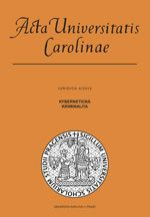Dvojí státní občanství
Dual Citizenship
Author(s): Jiří HřebejkSubject(s): Law, Constitution, Jurisprudence
Published by: Univerzita Karlova v Praze, Nakladatelství Karolinum
Keywords: citizenship; dual citizenship in the Czech Republic; EU citizenship
Summary/Abstract: On 1 January 2014 a new Act No. 186/2013 Coll., on State Citizenship of the Czech Republic, came into force, replacing the previous legislation adopted in 1993. On the one hand, the new Act imposes stricter conditions for obtaining the citizenship of the Czech Republic. It requires – in addition to traditional prerequisites – full integration of the person applying for conferral of citizenship into Czech society. On the other hand, the Act allows Czech citizens to hold dual citizenship in markedly more situations than before. The Czech state no longer requires a foreigner who applies for Czech citizenship after 1 January 2014 to renounce his present citizenship. However, if we agree that the citizenship status implies loyalty to the state, the obligation to its defence, the exercise of certain functions to which a citizen is called, and the respect for and abidance by legal rules issued by the state also outside of its territory, the existence of dual loyalty may become problematic, notably in extreme situations in which “a conflict of interests”, in every possible sphere connected to citizenship, has to be managed. The new Act also introduces a different (simplified) regime of conferring citizenship to citizens of EU Member States. The coexistence of citizenship of an EU Member State which is primary and the EU citizenship which derives from it cannot be considered as dual citizenship (the EU is not a state, its citizenship is not a state citizenship). The author views the EU citizenship as another federal feature in the EU structure.
Journal: Acta Universitatis Carolinae Iuridica
- Issue Year: 60/2014
- Issue No: 2
- Page Range: 105-108
- Page Count: 4
- Language: Czech

